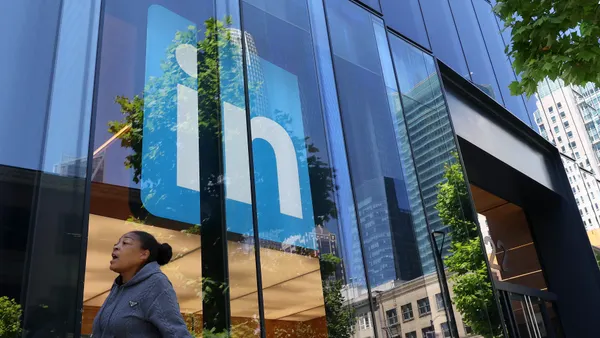Dive Brief:
- Only 39% of employees in a new Randstad U.S. survey are satisfied with their benefits, even though only 48% know all of their employer's benefits offerings. A strong majority of the 756 survey respondents (94%), however, said they want benefit offerings that will impact the quality of their lives, such as flexible work schedules or student-debt pay down plans.
- Survey results show that benefits can be a bigger talent draw than money: according to 66% of respondents, benefits and perks are the largest determining factor in considering a job offer, and 61% would take a job with a lower salary for a better benefits package. Poor benefits offerings are causing 42% of employees to consider leaving their current jobs, and 55% have already left jobs because they found better benefit offerings elsewhere.
- Respondents also prioritized employer-sponsored benefits. Health insurance was cited as the most important, especially among respondents over 50, followed by retirement or pension plans. The three highest rated perks were early Friday dismissals; remote or flexible work schedules; and onsite amenities, such as a gym or concierge services. Nearly half (41%) of respondents ages 18 to 24 said their current employers don't offer student loan benefits, but said that they wish their employers did.
Dive Insight:
Employers must develop frequent, personalized communication around their benefits plans in order to ensure employees understand their options. In a 2017 Guardian study, 80% of employees said they understood their benefits, but when tested, only 49% actually did. Simple steps like periodic reviews, reminders and change updates can be invaluable strategies.
Healthcare tops employees' list of preferred traditional benefits, but it's also one of the costliest. The challenge for employers and workers is to continuously find ways to seek healthcare savings, wherever possible, without sacrificing quality. One such cost-saving method is the enhanced use of preventive care, which can detect health problems early before expensive treatment becomes necessary.
The tight labor market makes talent attraction and retention crucial. Employers that don't offer benefits that workers want, risk losing them to competitors, as the Randstad U.S. survey and other polls affirm. HR leaders can help their organizations find out what benefits employers prefer by simply polling them. However, employers must keep in mind that preferences often differ on the basis of age, gender, financial background and other demographics.
Voluntary benefits have also become virtual must-haves for workers. Offerings such as coverage for identity theft, pet insurance, student-debt repayment plans, cybersecurity insurance and financial counseling can improve workers' lives in significant ways and build loyalty.













